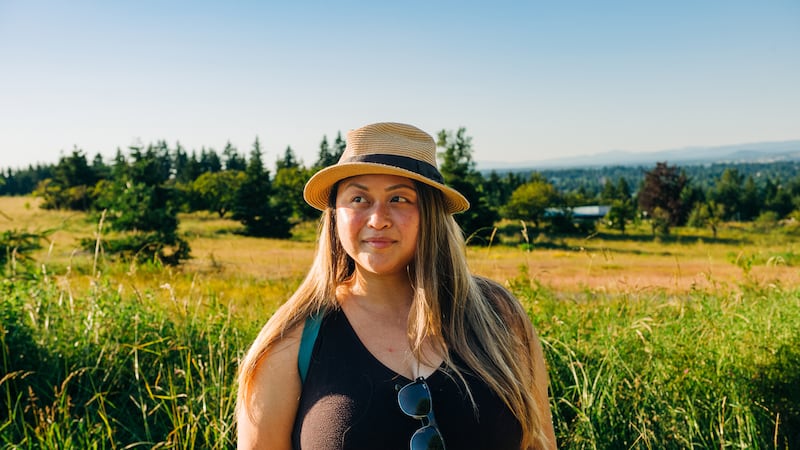On June 13, Daniel Nguyen became the last winner in Oregon’s May election.
It took 27 days for Clackamas County elections workers to finish counting ballots in the Democratic primary for House District 38. Nguyen, 43, a Lake Oswego city commissioner and the founder of restaurant chain Bambuza Vietnam Kitchen, won by a mere 28 votes.
The narrow margin wasn’t the most remarkable aspect of the result.
Nguyen’s victory made him the fifth Vietnamese American in the election to secure the Democratic Party’s nomination to a seat in the Oregon House.
Nguyen first noticed how many other candidates were Vietnamese at a filing-day party this March. “I was just super excited,” he recalls. “I was joking, ‘I’ll make sure that I always have a pot of rice going on in my office.’ Then another person volunteered, ‘I’ll bring fish sauce.’”
Something extraordinary was brewing. “I know there’s a lot more Vietnamese Americans in California,” Nguyen says, “but are there even five Vietnamese Americans serving in the State Assembly in California?”
There aren’t. In fact, Oregon is poised to have the largest Vietnamese American representation of any state legislature in the nation.
Nguyen and his four fellow Democratic nominees are in safely blue districts where they’re likely to win in November. That means come January, five of the House’s 60 seats could be held by Vietnamese Americans—that’s 8%, roughly 10 times the population share of people of Vietnamese descent living in Oregon.
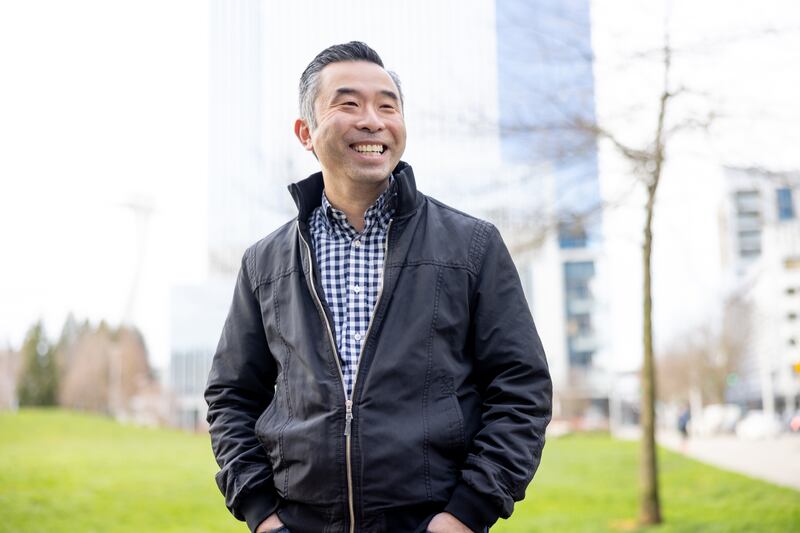
Vietnamese residency in Oregon is substantial—especially in Portland, where Best Baguette outlets serving banh mi out of drive-thru windows display the cultural influence of 32,901 people. This is the nation’s 29th-largest city, but if its size were measured only by its Vietnamese population, it would be 15th.
If the November general election plays out for these candidates, the concentration of power in Salem would be unprecedented for any nonwhite group, including those that are far more numerous with longer histories in the state.
By all accounts, the rise of these Vietnamese candidates is coincidental, not coordinated. Each boast markedly different résumés: climate advocate, dentist, restaurateur, optometrist and school attendance officer. Their politics range from the left end of the Democratic Party to its business-friendly center. Several of them had never met until after filing to run for office.
But the five candidates are bound together by a common experience: They are all children of refugees.
At a time when the Jan. 6 hearings and rulings by the U.S. Supreme Court could sour many Oregonians on politics, these five still believe they can make Oregon better. Despite the infamously low pay and long hours, a citizen legislature is still an attractive proposition—and American democracy still shows flickers of life.
“We have very different pathways to get here,” Nguyen say. “But we have this common thread going through all of our families: We all came from nothing. We had to watch our parents rebuild from nothing. With what little they had, they were able to create a future for us. And look at us now.”
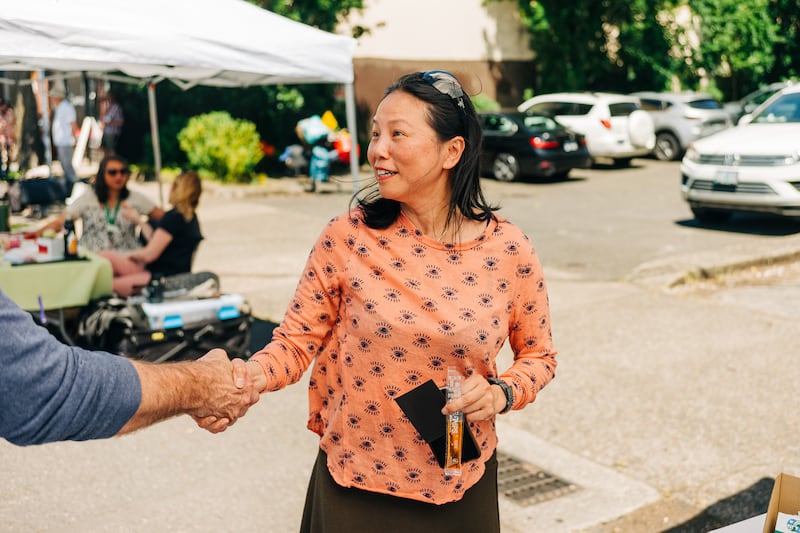
Thuy Tran boarded a wooden fishing boat at the port of Vung Tàu four days before the fall of Saigon on April 30, 1975. She was 9 years old. Tran remembers sleeping on a mat laid in the hull of a Chinese tanker and, upon arriving, receiving a massive plate of food in an airport restaurant in the United States.
Hoa Nguyen was born in Versailles, La., where her parents found refuge after fleeing Vietnam. (She’s no relation to Daniel: Nguyen is Vietnam’s most common surname.) She was “a convenience store kid,” working the till at her parents’ market in a tight-knit Louisiana neighborhood of uncles, aunts and cousins.
Eventually, both women found their way to Portland’s Northeast Sandy Boulevard.
That wasn’t unusual. In the 1970s and ‘80s, thousands of Vietnamese refugees gravitated to neighborhoods along Sandy, like Hollywood and Rose City Park.
Vietnamese arrivals headed to Sandy because of city policies that restricted new housing to neighborhoods near freeways and arterial roads, says Hannah Crummé, who heads special collections at Lewis & Clark College and volunteers with the history project Vietnamese Portland. “People were worried that so many refugees were coming in that it was going to change the character of the city,” she says.
Refugees were also drawn to Our Lady of Lavang Catholic Church, which served as the city’s Vietnamese cultural hub. By 1995, a WW cover story said the church had 6,000 parishioners, “the largest Vietnamese congregation north of San Jose.”
This was due in large part to the Rev. Vincent Cao Dang Minh, who as pastor of the Southeast Asian Vicariate oversaw the resettlement of thousands of Vietnamese Catholics across Western Oregon. (In 2001, Minh’s superiors abruptly removed him from Oregon. Church bankruptcy filings reported by The Oregonian showed that police had investigated “credible and consistent” allegations that Minh had molested two young girls.)
Hoa Nguyen arrived in Portland in 2000. She took Vietnamese language lessons at Our Lady of Lavang every Saturday.
“They would cook Vietnamese food on the weekends to serve the families,” she recalls. “It almost felt like a restaurant. That’s where I felt connected to my culture.”
Sandy Boulevard never rivaled the scale of Little Saigon in Los Angeles. But the street was soon lined with businesses run by Vietnamese immigrants: nail salons, bakeries, and stores selling karaoke CDs. (While a Japanese invention, karaoke became a phenomenon among Vietnamese teenagers.)
“Here in Portland, we’ve always hovered around 8,000 to 14,000 Vietnamese people,” says Jack Phan, a Portland tech entrepreneur who grew up near Mount Tabor and came to this country from Vietnam by boat when he was a year old. “And so it was definitely a lot closer. I go to other cities, Houston or Orange County; people know each other, but here in Portland it’s hard to not find a Vietnamese person that you don’t somehow already know.”
Portland’s Vietnamese population gradually spread east—first to the Jade District along Southeast 82nd Avenue, then to Happy Valley. (Our Lady of Lavang moved to Happy Valley in 2020.) New generations arrived from Vietnam. In last year’s census, Oregon had the fifth-largest share of Vietnamese Americans in the U.S.
And the two women who arrived on Sandy? They’re both running for the Oregon House this year.
Tran, 56, became an optometrist. She started Rose City Vision Care at Northeast 45th Avenue and Sandy in 1995. She lost a House race to Jessica Vega Pederson in 2012, then successfully campaigned for the Parkrose School Board.
Hoa Nguyen, 38, is an attendance officer for Portland Public Schools (“if I can convince a middle school student to go to school, I can do anything,” she quips) and also serves on the David Douglas School Board.
She never forgot what she encountered along Sandy Boulevard. “Vietnamese refugees who resettled in America started creating their own community for survival,” Hoa Nguyen says. “It feels like family. I never want to lose that.”
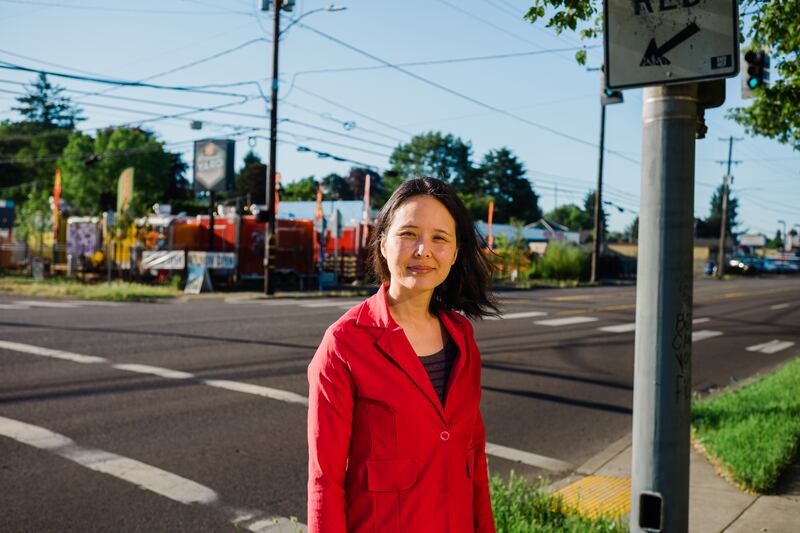
Vietnamese Americans mulling runs for office this year had a role model.
Rep. Khanh Pham (D-Portland) was elected to the House in 2020. She became the first Vietnamese American to serve in the Legislature and Oregon’s only sitting lawmaker of Asian descent.
Pham, 43, worked on environmental justice at the Asian Pacific American Network of Oregon for four years before seeking office. While there, she was a key architect of the Portland Clean Energy Fund, the 2018 voter-approved tax on corporations that collects millions of dollars for green energy projects in low-income communities of color. In other words, it redistributes wealth to blunt the health effects of climate change in the parts of town where she grew up.
Among the five Vietnamese American candidates running this year, she’s the sole incumbent, probably the furthest left, and the only one who identifies primarily as an activist.
“I had never really even saw myself in electoral politics, but [passing the Clean Energy Fund] gave me the confidence when the seat opened up soon after,” Pham tells WW. “I kind of knew all the stuff that it takes to win, and so I was more confident about my ability to run, not just for myself, but really for the movement that we had built.”
Her 2020 run was fueled by awareness of a warming planet. Pham remembers eating breakfast outside on an intensely hot day during one of her regular visits to family in Vietnam. The visceral experience of the heat—the sense of panic she felt when sweat did not evaporate from her skin because it was so humid—made her realize she had a responsibility to help people who could not retreat into air-conditioned condos.
Those voices haven’t always been heard in the state Capitol. As recently as 2009, just two of the 90 members of the Oregon Legislature were people of color.
Pham went to Salem representing House District 46, which runs from Laurelhurst to the Jade District. “I was the only Asian American legislator and did feel a heavy responsibility,” she says. “So many issues came up, and I felt like I was the only one who would really fight for it hard.”
That burden increased in March 2021, when a white man killed eight people—six of them Asian women—in a shooting spree in spas outside Atlanta. The murders spurred a nationwide movement called Stop Asian Hate. In Oregon, Pham decided that meant a bias crimes hotline where someone actually answered the phone. She championed $2 million to staff the hotline statewide.
“I don’t know if anyone else would have responded,” she says, “and heard how much we were hurting after that. We were hurting beforehand. And this was during COVID, [with] increasing bias crimes against Asians who were blamed for the pandemic. But the murders really underlined the physical dangers that many of our community were feeling.”
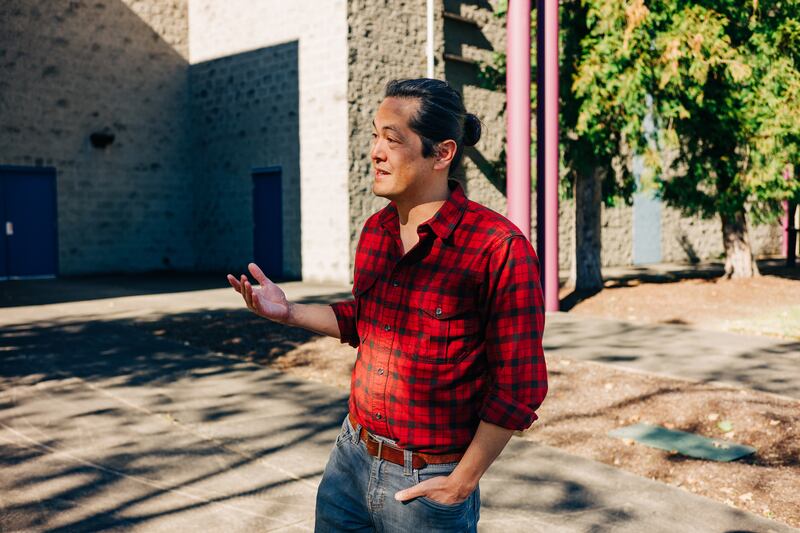
If there’s a common mission galvanizing the five Vietnamese American candidates on the ballot, it isn’t easy to find.
They didn’t coordinate their campaigns—or, in many cases, realize the others were running. No two candidates were recruited to run by the same person. And their policy platforms span the ideological range of the Democratic Party.
“We have really different backgrounds and different issue areas,” says Khanh Pham. “I think that’s healthy, when people can see that we’re not monolithic.”
Hai Pham, a Hillsboro dentist, wants to expand health insurance coverage after surviving his own cancer diagnosis. Thuy Tran also says expanded health care is her priority—especially after treating eye diseases among farmworkers. Daniel Nguyen believes whether Oregon supports entrepreneurship will decide how it emerges from the pandemic. Hoa Nguyen says more kids will show up to school if it’s easier to get there. So she wants to build more sidewalks and send more TriMet buses to East Portland.
What’s a bit surprising is that all five are running as Democrats.
For decades, Vietnamese Americans were a reliable Republican voting bloc. Refugees loathed the communism that overran Vietnam, so they voted GOP in America—a phenomenon parallel to the better-known party allegiances of Cuban Americans in Miami.
But that’s changing. New data from California journalism nonprofit CalMatters shows second-generation Vietnamese Americans are rapidly defecting to the Democratic Party. “There’s obviously a very important schism between the Republican older generation and the more liberal younger generations,” Crummé says.
Adds Daniel Nguyen: “We always defer to our elders. But I think you’ll start to see more and more courage to say something that may not exactly line up with what our parents might have said.”
As to why Democratic Party voters are embracing Vietnamese American candidates, Portland pollster John Horvick says that has more to do with party leaders recruiting diverse candidates than with voter attitudes on race.
With the exception of Daniel Nguyen, none of the candidates faced serious competition in the primary, Horvick notes, and none is likely to see a serious Republican threat in November.
But Horvick says the children of refugees may change the party they now represent. “Three of them are small-business owners, and that’s not something that voters necessarily associate with the Democratic Party,” he says. “That second-generation immigrant story has a chance to shape the party narrative.”
It’s a commonplace in American life that it takes a generation for new arrivals to grow roots deep enough to demand a political say. That may be what’s happening now among Vietnamese Americans.
“It has to do with the second generation really coming of age,” Khanh Pham says. “I think that is an interesting story about what happens to immigrant communities as they start to become more assimilated, frankly, into social and political systems. We’re learning about how to build political power.”
Hai Pham, the Hillsboro dentist, remembers tagging along with his parents as they worked any job they could find: picking berries, cleaning houses, emptying trash cans at doctors’ offices while he played with the stethoscope. He remembers how little they had, and how difficult it was for them to assert who they were.
He says other families are going through the same thing. Pham wants to represent them.
“Other BIPOC communities need to have a voice too,” he says. “I want to help give them a voice.”
WW news intern Ekansh Gupta contributed reporting to this story.
Fast Five
A primer on the Vietnamese Americans seeking Oregon House seats this fall.
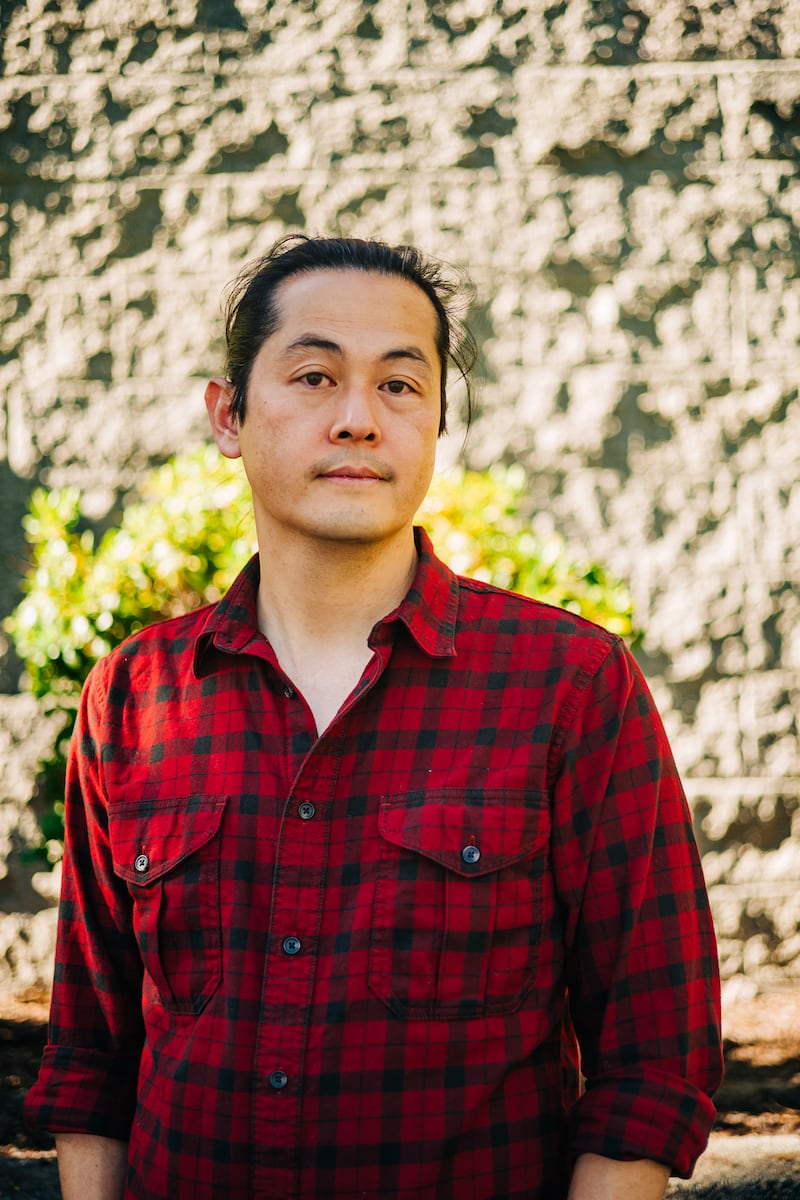
Hai Pham
Age: 42
Running for: House District 36 (Hillsboro, Beaverton)
Born in: A refugee camp in Malaysia
Job: Pediatric dentist
Previous elected office: None
Fun fact: After surviving leukemia, Pham started volunteering as a patient advocate at Oregon Health & Science University’s Knight Cancer Institute.
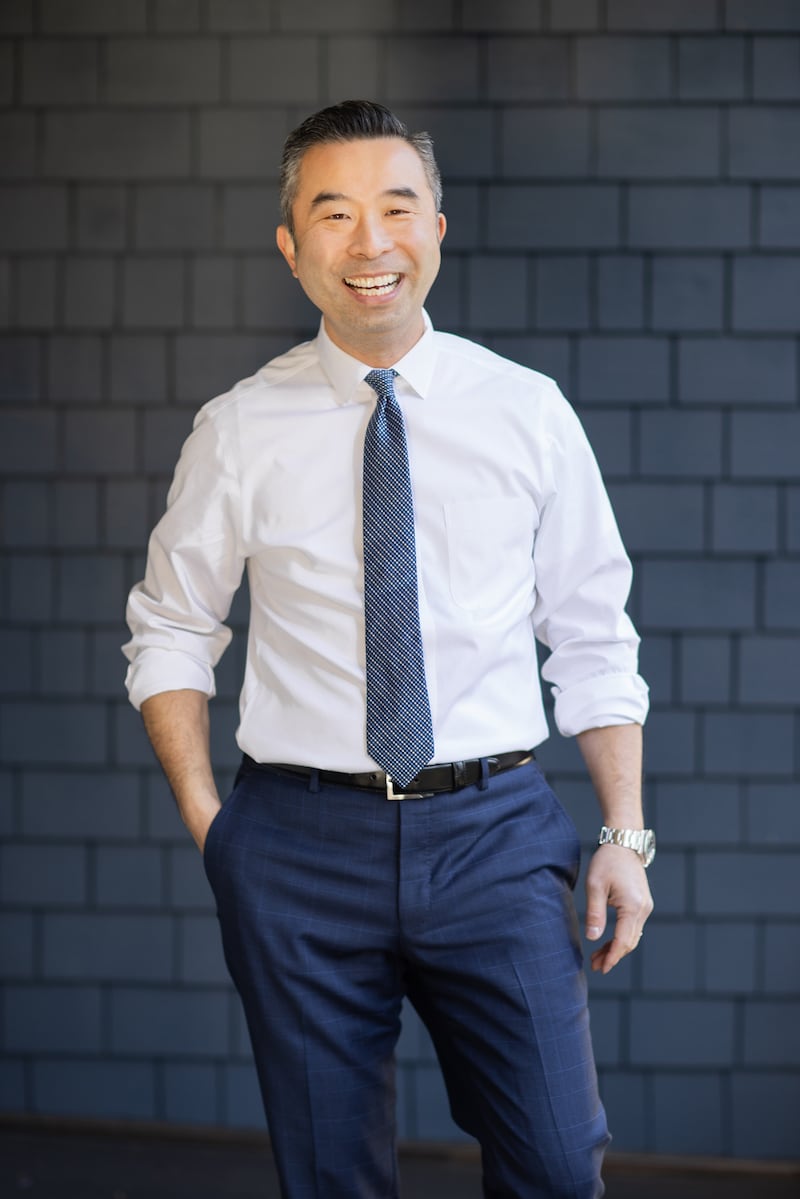
Daniel Nguyen
Age: 43
Running for: House District 38 (Lake Oswego)
Born in: Camas, Wash.
Job: Founder of Bambuza Vietnam Kitchen, which has locations in Portland and Seattle
Previous elected office: Lake Oswego city commissioner, 2018-present
Fun fact: Bambuza is the longest-running storefront in Portland’s South Waterfront.
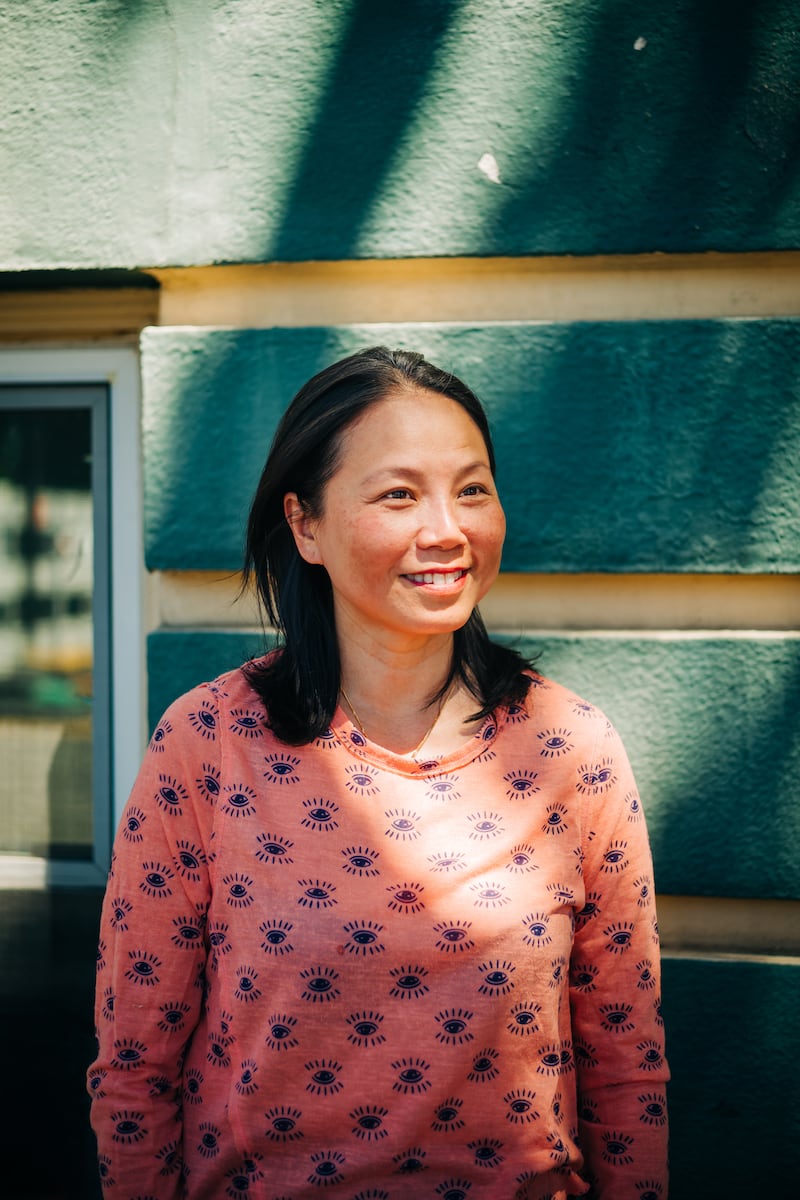
Thuy Tran
Age: 55
Running for: House District 45 (Outer Northeast Portland)
Born in: Tây Ninh, Vietnam
Job: Optometrist, founder of Rose City Vision Care
Previous elected office: Parkrose School Board, 2012-2015
Fun fact: Tran is a lieutenant colonel and chief of optometry in the 42nd Division of the U.S. Air National Guard.
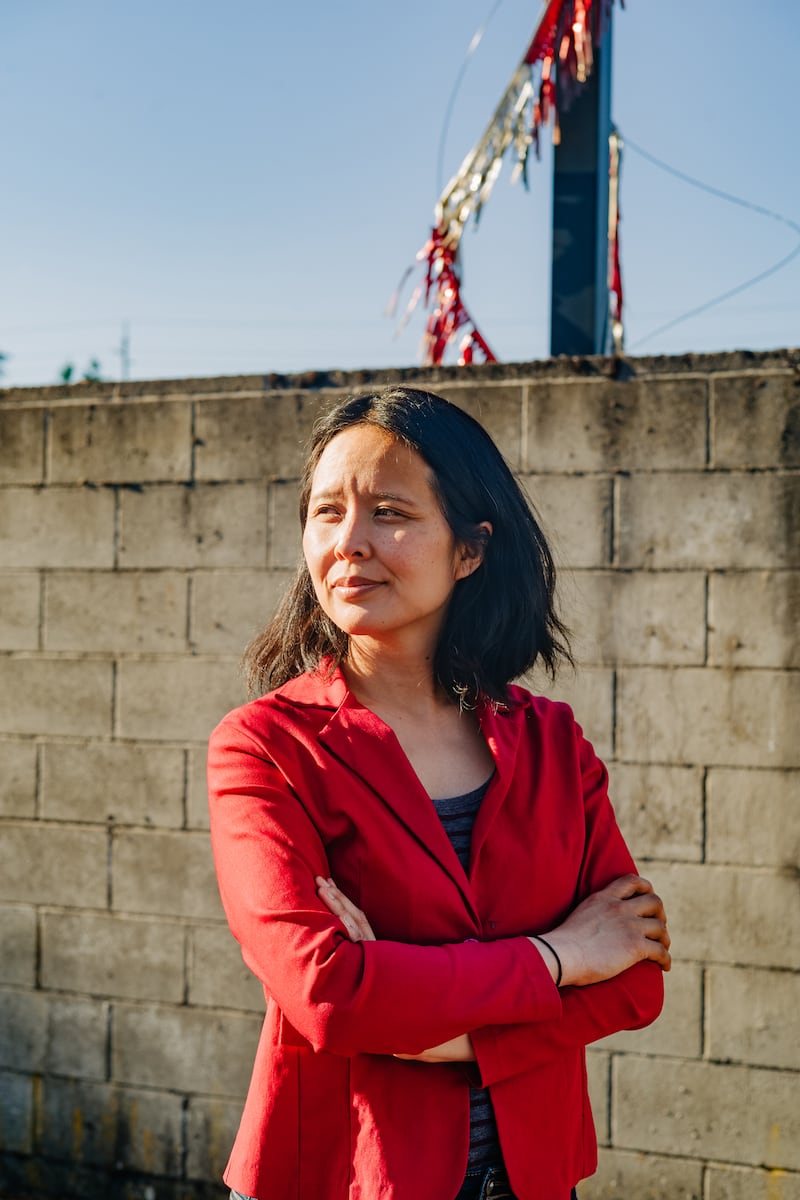
Khanh Pham
Age: 43
Running for reelection in: House District 46 (Southeast Portland)
Born in: Oklahoma City
Job: Before joining the Legislature, she worked at the Asian Pacific American Network of Oregon and OPAL Environmental Justice Oregon
Previous elected office: None
Fun fact: She is the leading skeptic of highway construction serving on the Interim Joint Committee on the Interstate 5 Bridge.
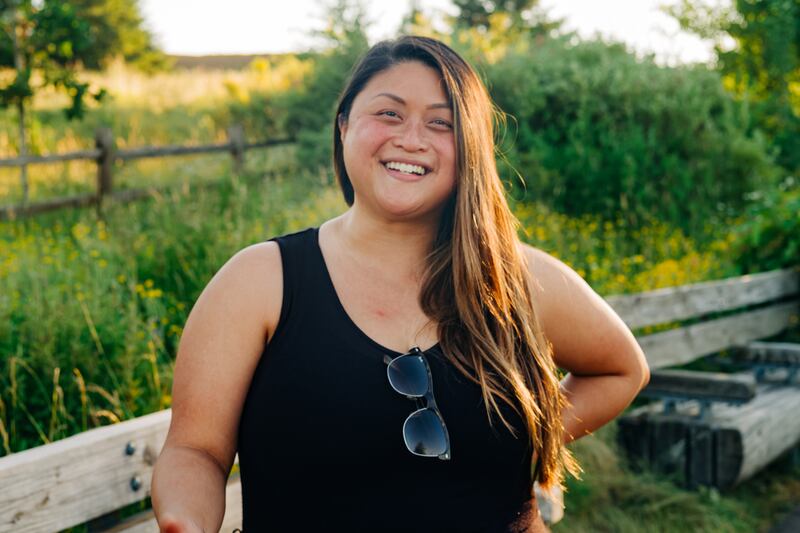
Hoa Nguyen
Age: 38
Running for: House District 48 (outer Southeast Portland, Damascus)
Born in: Versailles, La.
Job: School attendance coach, Portland Public Schools
Previous elected office: David Douglas School Board, 2021-present
Fun fact: Nguyen moved to Oregon by herself as a teenager to attend St. Mary’s Academy.
